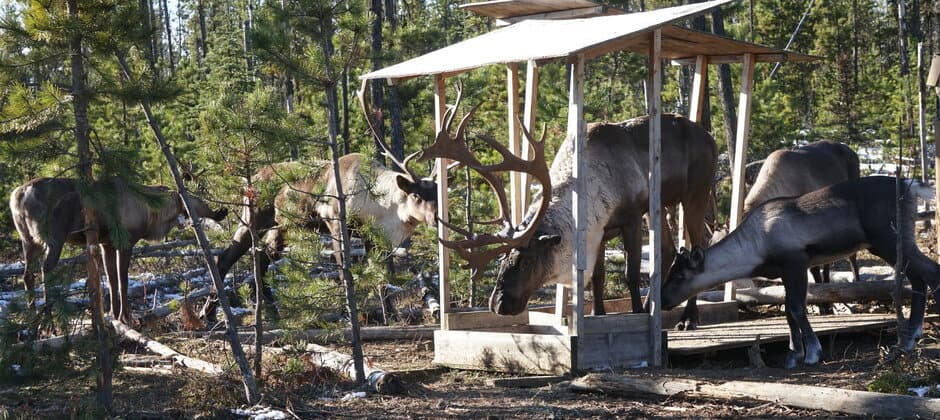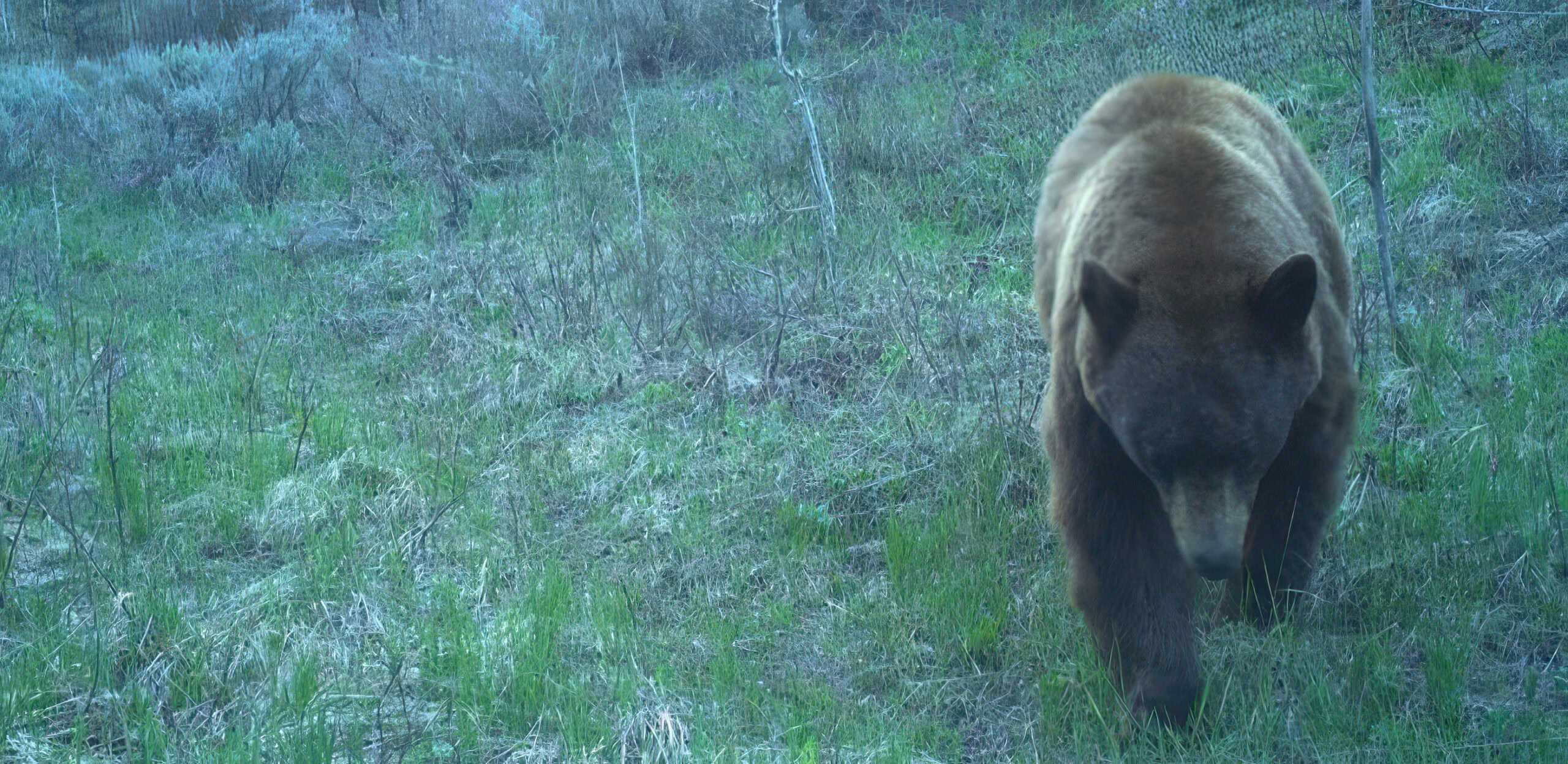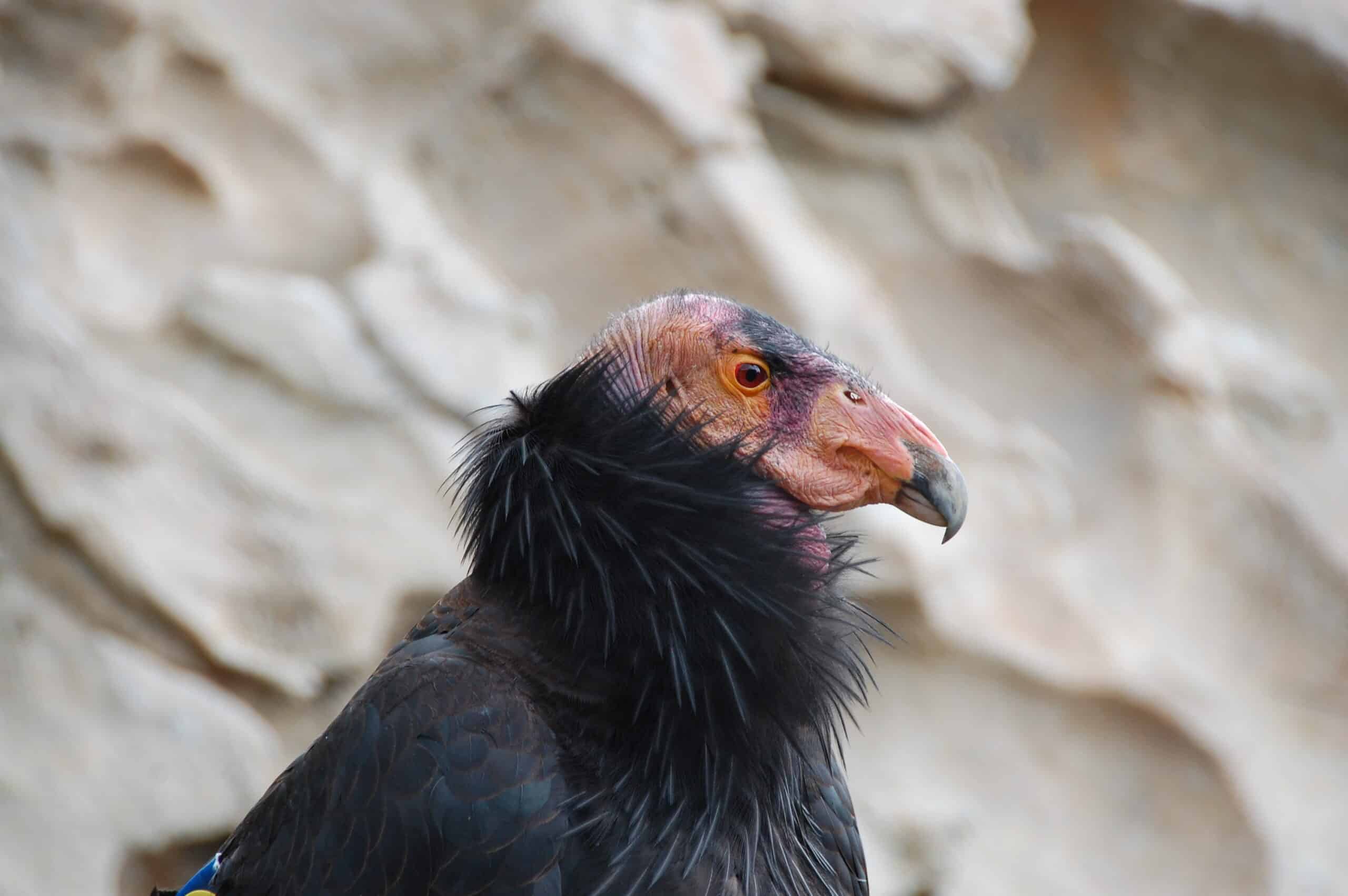Share this article
Watch: Supplemental feeding can boost small caribou herds
Supplemental feeding may help boost the population numbers within small caribou herds by improving their nutrition and increasing survival.
“We were motivated to do this study because most caribou in British Columbia were declining,” said TWS member Douglas Heard, a professor at University of Northern British Columbia and wildlife consultant at Tithonus Wildlife Research.
The major cause of their decline is logging, which leads to an increase in moose (Alces alces). More moose support more predators like wolves (Canis lupus), which in turn prey on caribou.
Heard and his co-author Kathryn Zimmerman, Caribou Recovery Science Lead at the British Columbia Ministry of Environment and Climate Change Strategy, analyzed woodland caribou (Rangifer tarandus caribou) supplemental feeding stations in northern British Columbia on the McLeod Lake Indian Band’s Traditional Territory with the help of the local indigenous people.
Their analysis showed that population growth increased for the caribou that received the supplemental food.
“High intensity projects like this and predator reduction are like emergency room blood transfusions,” Zimmerman said in the video. “We need these short-term measures to help stop the decline of caribou and the risk of local extinction.”
Header Image: Woodland caribou at a feeding station. Credit: Doug Heard








